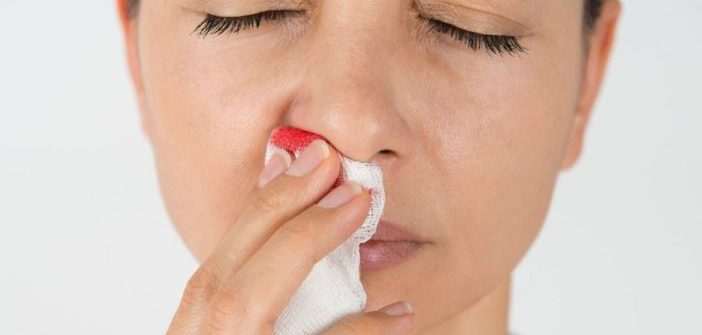During winter, I find it quite embarrassing to talk to people whenever I have a runny nose (and dried remnants of nasal fluid). But a recent incident almost freaked me out: I had blood dripping from my nose and I didn’t know about it until I looked at a mirror. Prior to this, I felt my nose had been dry for days and I had been blowing it out because of a winter allergy.
Winter nosebleeds happen when the blood vessels inside the nose rupture due to environmental conditions like low humidity, indoor heat, or cold air, or through force such as a strong cough or sneeze, or just by picking your nose especially when you have sharp fingernails. People who take blood thinners like aspirin are also prone to nosebleeds.
If a nosebleed happens, you should:
– Stay calm. Your blood pressure shoots up when you’re nervous or panicky, thus making you bleed more.
– Sit up, lean forward, and breath through your mouth. This body position will drain the blood from your nose and will keep it from flowing down to your throat. Do not lie down.
– Pinch together your nostrils for 5 to 10 minutes. Then apply a cold compress or ice across the nose bridge to help slow the blood flow.
The nosebleed will eventually stop but do not touch or blow your nose because the vessels and membranes might burst further. If it happens together with a runny nose or a cold, gently wipe the nose with a tissue. If the bleeding continues for longer than 20 minutes, or becomes profuse to the point that you’ve lost a lot of blood, or makes it difficult to breathe, seek emergency assistance immediately.
How to Prevent Nosebleeds
Fortunately, most nosebleeds are not serious and can be prevented by doing the following:
– Ensure that your nose is moist. Use a cotton swab to gently smear a thin layer of petroleum jelly into your nostrils three times a day. You can also use a saline nasal spray. At home or in the office, use a humidifier to regulate air moisture.
– Don’t blow or rub your nose too hard. If you have to do pick your nose, make sure that your fingernails are short.
– Limit the use of cold or allergy medications that can dry out your nose.
Photo: HealthPrep
